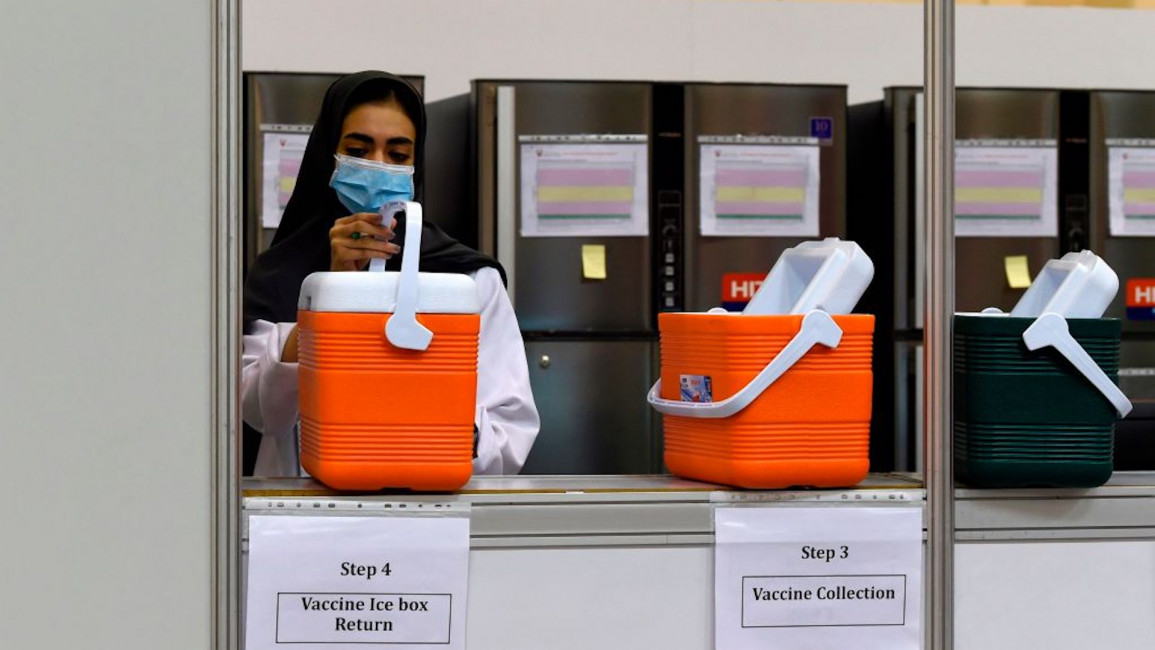Saudi hosts G20 talks on virus recovery, debt relief
G20 finance ministers and central bankers were holding talks Wednesday aimed at spurring global recovery from a coronavirus-triggered recession as they consider a proposal to extend debt relief for crisis-hit poor countries.
The virtual talks, hosted by current G20 president Saudi Arabia, come a day after the International Monetary Fund said the global economy would contract 4.4 percent in 2020 and that damage inflicted by the pandemic would be felt for years.
The meeting, chaired by Saudi Finance Minister Mohammed al-Jadaan and central bank governor Ahmed al-Kholifey, is meant to discuss updates to the "G20 Action Plan" aimed at shoring up the global economy through the pandemic.
"The recovery is uneven, highly uncertain and subject to elevated downside risks," Jadaan said in his opening remarks.
"Indeed, the pandemic has significantly disrupted global growth and exacerbated pre-existing structural challenges, especially for low-income countries. Therefore, we should not be complacent."
The group is also set to discuss "the progress made on the DSSI (Debt Service Suspension Initiative) and its proposed extension into 2021," Jadaan added.
The 20 most industrialised nations had pledged in April to suspend debt service from the world's poorest countries through the end of the year as they faced a sharp economic contraction caused by the pandemic.
The World Bank and campaigners have called for the debt suspension initiative to be extended through the end of 2021, while charities such as Oxfam say it needs to be stretched through 2022.
But World Bank president David Malpass on Monday warned G20 countries may only approve a six-month debt relief extension because "not all of the creditors are participating fully" to help poor nations weather the health crisis.
"I think there will be compromise language (on) maybe a six-month extension that can be renewed depending on debt sustainability," Malpass said.
'Draining out Titanic with a bucket'
The DSSI has received 46 applications from eligible countries across the world, most of them from Africa, the G20 said last month.
But the initiative has covered "a meagre 1.66 percent" of debt payments by developing nations this year, according to European Network on Debt and Development (Eurodad).
"Of the 46 beneficiary countries, it has had very limited impact due to the failure of private and multilateral lenders to participate," Eurodad said in a report that likened the initiative to "draining out the Titanic with a bucket".
"As a result, only 24 percent of the debt payments due to be made between May and December 2020 by beneficiary countries were actually subject to potential debt suspension."
Wednesday's talks will also discuss ways to achieve consensus on a global taxation system for the digital era, organisers said.
The talks come as the surging health crisis continues to batter the global economy and triggers unemployment on a massive scale.
Huge injections of government aid have kept economies from plunging further in 2020, but the continued presence of Covid-19 means the outlook is highly uncertain, the IMF said on Tuesday.
The recession has been less severe than expected but still deep and "the ascent out of this calamity is likely to be long, uneven, and highly uncertain," IMF chief economist Gita Gopinath said.
Campaigners warn of a looming debt crisis across poverty-wracked developing nations.
The World Bank on Monday said the debt of the world's 73 poorest countries grew 9.5 percent last year to a record $744 billion, which shows "an urgent need for creditors and borrowers alike to collaborate to stave off the growing risk of sovereign-debt crises".
The countries' debt burden owed to government creditors, most of whom are G20 states, reached $178 billion last year, it added.
Last month, G7 finance ministers said they "remain committed" to the DSSI while again calling for private creditors to implement the plan.
But Malpass has decried a lack of participation by private sector creditors, while adding that wealthier countries are not doing their full share.
Follow us on Facebook, Twitter and Instagram to stay connected



